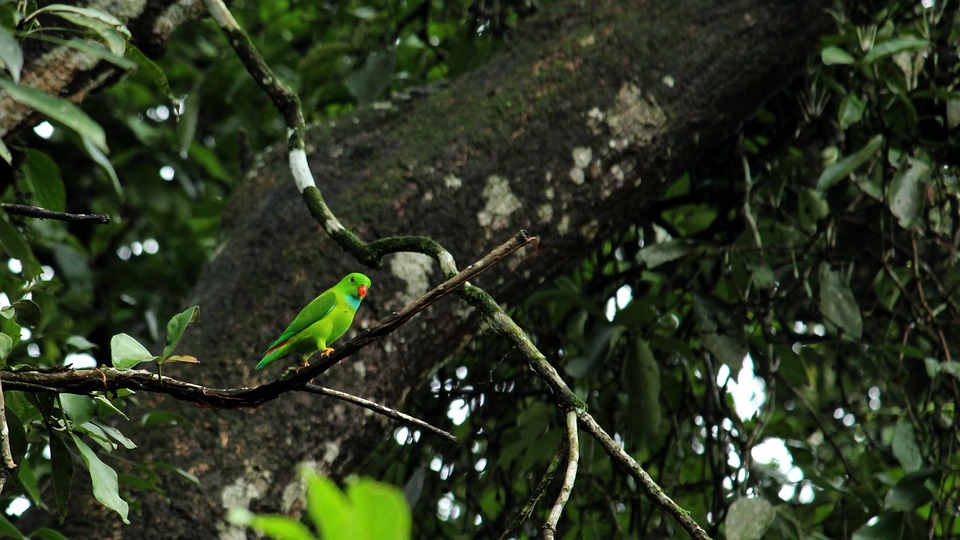Parrots are incredibly intelligent and social creatures, making them excellent candidates for training. However, their keen hearing and curious nature can sometimes make it challenging to keep their attention focused during training sessions, especially when external noises become a distraction. In this article, we will provide you with effective strategies to discourage parrots from getting distracted by external noises during training sessions, ensuring a productive and successful training experience.
Understanding the Impact of External Noises on Parrot Training
Before diving into the strategies to discourage parrots from getting distracted, it’s essential to understand why external noises can disrupt their focus. Parrots have exceptional hearing abilities, capable of detecting sounds within a wide range of frequencies. Their heightened auditory sensitivity can cause them to react to even the slightest noise, diverting their attention away from the training task at hand. Additionally, parrots are naturally curious creatures, always alert to changes in their environment. Noises from the surrounding environment can pique their curiosity and easily divert their attention, making training more challenging.
Creating a Distraction-Free Training Environment
To minimize the impact of external noises on your parrot’s training sessions, it’s crucial to create a distraction-free environment. Here are some steps you can take:
1. Choose a Quiet Room: Select a room in your house that is relatively quiet and has fewer potential distractions. Avoid rooms that are near busy roads, construction sites, or areas with frequent foot traffic.
2. Close Windows and Doors: Shutting windows and doors can help reduce external noises, ensuring a quieter atmosphere for training. Consider using heavy curtains or soundproofing materials to further minimize noise infiltration.
3. Turn Off Electronic Devices: Electronic devices such as televisions, radios, or loud music can cause unnecessary distractions. Make sure to turn them off or keep them at a low volume during training sessions.
Using Positive Reinforcement Techniques
In addition to creating a distraction-free environment, positive reinforcement techniques can help redirect your parrot’s focus back to the training session. By associating training with rewards and positive experiences, you can motivate your parrot to stay engaged. Here’s how you can implement positive reinforcement techniques:
1. Reward Good Behavior: Whenever your parrot exhibits focused behavior during training, provide immediate positive reinforcement. This can be in the form of verbal praise, treats, or a favorite toy. The key is to reinforce the desired behavior as soon as it occurs.
2. Start with Shorter Sessions: Parrots have limited attention spans. Begin with shorter training sessions and gradually increase the duration over time. This helps prevent mental fatigue, reducing the likelihood of getting easily distracted.
3. Use High-Value Rewards: Identify treats or toys that your parrot is particularly fond of, making them a high-value reward during training. This will increase your parrot’s motivation to stay focused and ignore external distractions.
Frequently Asked Questions (FAQs)
Q1: How long should a parrot training session last?
A: Parrot training sessions should generally last between 10 to 15 minutes, depending on your parrot’s attention span. Starting with shorter sessions and gradually increasing the duration is advisable.
Q2: What if my parrot gets easily distracted by the same noises repeatedly?
A: If your parrot consistently gets distracted by particular noises, try incorporating those noises into the training sessions. Gradually expose your parrot to the sounds while providing positive reinforcement, helping them develop tolerance and focus.
Q3: Should I punish my parrot for getting distracted during training?
A: No, punishment is not recommended during parrot training. Instead, focus on positive reinforcement techniques to encourage desired behavior. Punishment can lead to fear and anxiety, negatively impacting the training process.
Q4: Can training sessions be conducted outside to expose parrots to external noises?
A: While outdoor training sessions can be beneficial for socialization, they may introduce too many distractions initially. It is advisable to establish a solid training foundation in a controlled, distraction-free environment before gradually introducing external noises.
By creating a distraction-free environment and utilizing positive reinforcement techniques, you can effectively discourage your parrot from getting distracted by external noises during training sessions. Remember to be patient, consistent, and always prioritize your parrot’s well-being and comfort throughout the training process.









